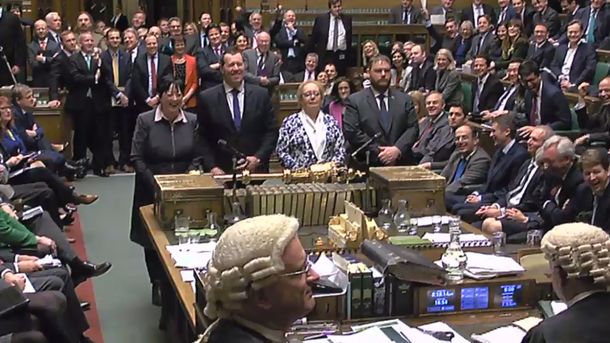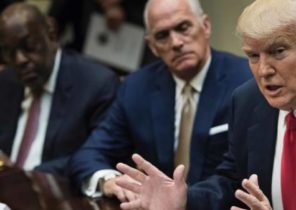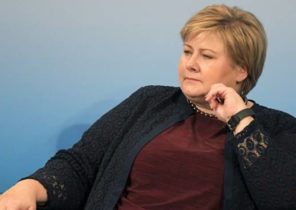
The house of Commons of the British Parliament, as expected, on Wednesday approved the third reading of the bill on the output of the United Kingdom from the European Union and referred it to the consideration of the house of lords.
Voted for the bill 494 MP, against – 122. The second reading took place on 1 February.
During the voting part of the audience in the conference room of deputies began to whistle and then to sing in chorus the anthem of the European Union. In a few minutes the acting speaker urged parliamentarians to order and demanded an end to the singing.
The outcome of the vote was a complete victory of the Cabinet of Ministers Theresa may and demonstration of high party discipline in controlling Parliament of the Conservative party. The bill was approved in third reading without adoption of the proposed Pro-European-minded parliamentarians amendments.
The government has managed to convince members of Parliament that Britain should not maintain membership in Euratom, EU citizens living in the country at the time of the referendum on EU membership can not be equated in the rights to United Kingdom citizens that the government is not obliged to report on the economic consequences of Brexit and for a second referendum. Also, the house approved a continuation of the current structure of the document. Oppose withdrawal from the EU parliamentarians, trying to prevent “hard” Brexit, suffered a crushing defeat.
Against this background and in minutes before the final vote on the resignation announced “shadow” Minister for business in the labour party, Clive Lewis. He stated that he did not vote for the bill, while the labour leader Jeremy Corbyn asked party members to support the document.
The UK Supreme court on 24 January ruled that the government could not use the 50-th article of the Lisbon Treaty to parliamentary approval of the bill. The government followed the court order and on January 26, made a half-page bill to the Parliament. Will it be possible for the government to enforce the schedule and initiate Brexit until the end of March, is now dependent on the activity of parliamentarians and the willingness of Ministers to dialogue.
The vote on the third reading took place after three days of deliberations in the committees, during which configured for maintaining membership of the EU legislators tried to make changes to give Parliament greater influence in the procedure of Brexit. Most of these changes were rejected, but the government on Tuesday promised that Parliament will get the chance to vote on the final version of the Treaty on withdrawal from the EU before the document will be approved by the European Union. However, the Cabinet agreed to hold a full debate on the Treaty.
As expected, the Pro-European members of the house of lords will also try to make the bill amendments similar to those offered to members of the house of Commons. It is possible that the discussion of the bill in the house of lords will be more difficult, as its members are appointed for life and do not depend on elections and will therefore defend their positions more actively.
The government expects to officially start the process of withdrawal from the EU no later than the end of March. Thus, Britain should leave the EU in the spring of 2019.







